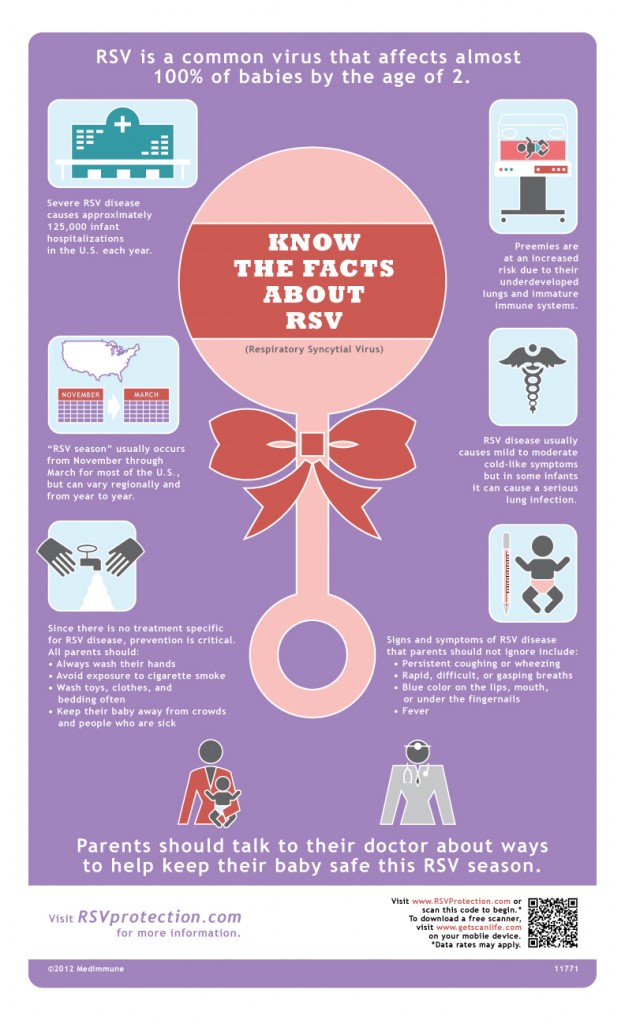 I had a normal and healthy pregnancy with my son, so when I got pregnant with my daughter I assumed I would have another normal pregnancy. Everything was normal until 35 weeks when I started to become severely itchy. I called my Dr and she wanted me to come in the next day for some tests and the day after that I found out I had developed cholestasis of pregnancy, a pregnancy induced liver problem. I was immediately sent to labor and delivery where we planned out what was going to happen next and that meant delivery our daughter at 36 weeks. I still remember the news and how scared I was. Generally babies born at 36 weeks are fairly healthy, but I had to get steroid shots to help speed up her lung development and I knew that there were risks associated with her coming early. One of the main risks being RSV.
I had a normal and healthy pregnancy with my son, so when I got pregnant with my daughter I assumed I would have another normal pregnancy. Everything was normal until 35 weeks when I started to become severely itchy. I called my Dr and she wanted me to come in the next day for some tests and the day after that I found out I had developed cholestasis of pregnancy, a pregnancy induced liver problem. I was immediately sent to labor and delivery where we planned out what was going to happen next and that meant delivery our daughter at 36 weeks. I still remember the news and how scared I was. Generally babies born at 36 weeks are fairly healthy, but I had to get steroid shots to help speed up her lung development and I knew that there were risks associated with her coming early. One of the main risks being RSV.
Thankfully our little trooper was born very strong and healthy and she didn’t get RSV or any other preemie related problems. Because their immune systems and lungs aren’t fully developed, preemies are more likely to develop infections and are more susceptible to respiratory problems, so getting something such as RSV can be a dangerous thing for them to catch.
RSV or respiratory syncytial virus is a contagious viral disease that may infect a person’s lungs and breathing passages. Children can develop it up until age 2 and RSV spreads rapidly among children. While RSV is present year-round it typically goes up in the fall, then peaks in the winter and goes down in early spring. But, the exact timing of RSV season varies by location.
Symptoms
Contact your child’s pediatrician immediately if your child exhibits one or more of the following:
- Severe coughing, wheezing or rapid gasping breaths
- Blue color on the lips, mouth, or under the fingernails
- High fever and extreme fatigue
RSV Quick Facts
- RSV is the leading cause of infant hospitalization, and severe RSV disease causes up to 10 times as many infant deaths each year as the flu.
- RSV is most prevalent during the winter months. The CDC has defined the “RSV season” as beginning in November and lasting through March for most parts of North America.
- In addition to prematurity, common risk factors include low birth weight, certain lung or heart diseases, a family history of asthma and frequent contact with other children.
Prevention is Key
RSV is very contagious and can be spread easily through touching, sneezing and coughing. Since there’s no treatment for RSV, parents should take the following preventive steps to help protect their child:
- Wash hands, toys, bedding, and play areas frequently
- Ensure you, your family, and any visitors in your home wash their hands or use hand sanitizer
- Avoid large crowds and people who are or have been sick
- Never let anyone smoke near your baby
- Speak with your child’s doctor if he or she may be at high risk for RSV, as a preventive therapy may be available
Thankfully RSV something we didn’t have to worry about with our daughter, but many parents out there aren’t lucky so this Fall/Winter season make sure you take precautions when you are around a newborn or preemie. November 17 is World Prematurity Day and I would love your help in spreading the news about RSV & Prematurity in Babies. You can help by tweeting this message:
Get the facts about #RSV in Premature Babies. Nov 17 is #WorldPrematurityDay #protectpreemies http://bit.ly/XGVZ3S
*I wrote this review while participating in a campaign for Mom Central Consulting on behalf of MedImmune and I received a promotional item to thank me for my participation.





carla bonesteel
Thursday 14th of February 2013
My son was born 9 1/2 weeks early, and was only 3lbs 7oz...so little.
Holly Rhone
Monday 17th of December 2012
i was a preemie at 32 weeks my mom had to have steroids too
kaydee perkins
Wednesday 12th of December 2012
what a great cause:)
Cassandra Huber
Wednesday 12th of December 2012
RSV is something I am just now hearing about.
CindyW
Wednesday 12th of December 2012
wow. brings back memories. my now 24yo son had this when he was 2 months old. scary time.